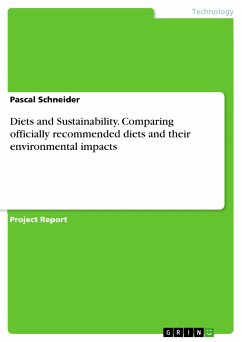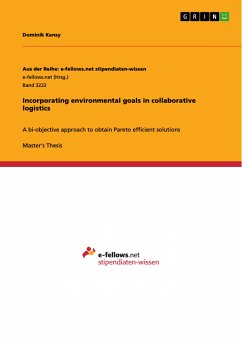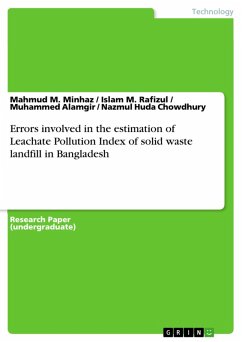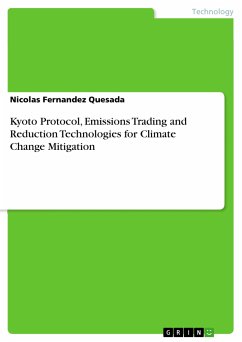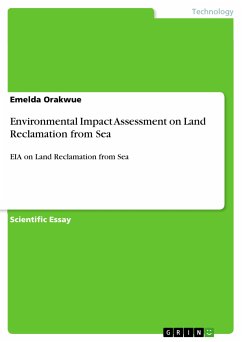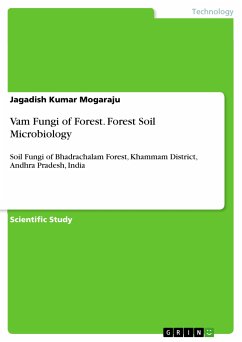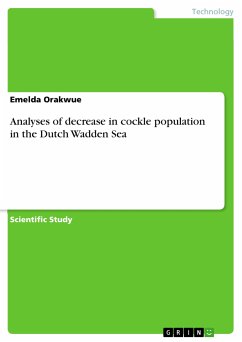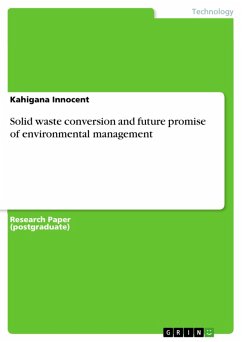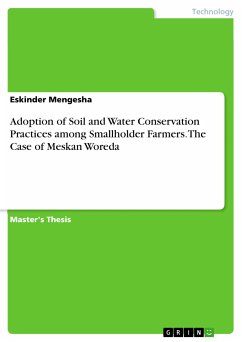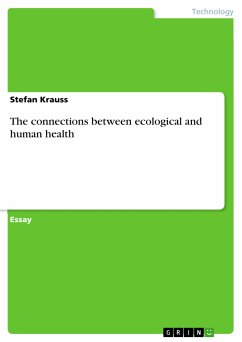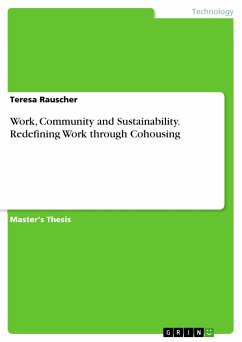
Work, Community and Sustainability. Redefining Work through Cohousing (eBook, PDF)
Redefining Work through Cohousing
Sofort per Download lieferbar
Statt: 24,99 €**
14,99 €
inkl. MwSt. und vom Verlag festgesetzt.
**Preis der gedruckten Ausgabe (Broschiertes Buch)
Alle Infos zum eBook verschenkenWeitere Ausgaben:

PAYBACK Punkte
0 °P sammeln!
Master's Thesis from the year 2013 in the subject Environmental Sciences, Lund University (Lund University Centre for Sustainability Studies), course: Environmental Studies and Sustainability Science, language: English, abstract: The prevailing view on work excludes unpaid activities like care, individual or community work although they are crucial for economy and everyday life. Because the focus on paid work also leads to both social and environmental unsustainability, work has to be redefined. Cohousing evolved from the belief that through a collective organisation with a specific built and ...
Master's Thesis from the year 2013 in the subject Environmental Sciences, Lund University (Lund University Centre for Sustainability Studies), course: Environmental Studies and Sustainability Science, language: English, abstract: The prevailing view on work excludes unpaid activities like care, individual or community work although they are crucial for economy and everyday life. Because the focus on paid work also leads to both social and environmental unsustainability, work has to be redefined. Cohousing evolved from the belief that through a collective organisation with a specific built and social environment, care work can become appreciated and facilitated. Hence, this thesis examines how cohousing today contributes to an extended view on work through a qualitative analysis of interviews with cohousing experts as well as participant observations of and focus group interviews with two cohouses in Austria and Sweden. The study shows that in cohousing the key to a redefinition of work is its community work, taking place at an intermediary level which is located between the private family and public spheres. Community work is more visible, pleasant and appreciated which is facilitated by a particular structure, physical space and a well-functioning community of a certain size. Furthermore, it allows a fairer distribution of work between women and men, facilitates family work, enables financial savings and strengthens the group. This study aims to reinforce the discussion of redefining work within Sustainability Science, where it is not a major topic despite its complex and transdisciplinary nature. By giving a practical approach to a redefinition of work, the findings contribute to an understanding of work and support the further development of cohousing.
Dieser Download kann aus rechtlichen Gründen nur mit Rechnungsadresse in A, B, BG, CY, CZ, D, DK, EW, E, FIN, F, GR, HR, H, IRL, I, LT, L, LR, M, NL, PL, P, R, S, SLO, SK ausgeliefert werden.




